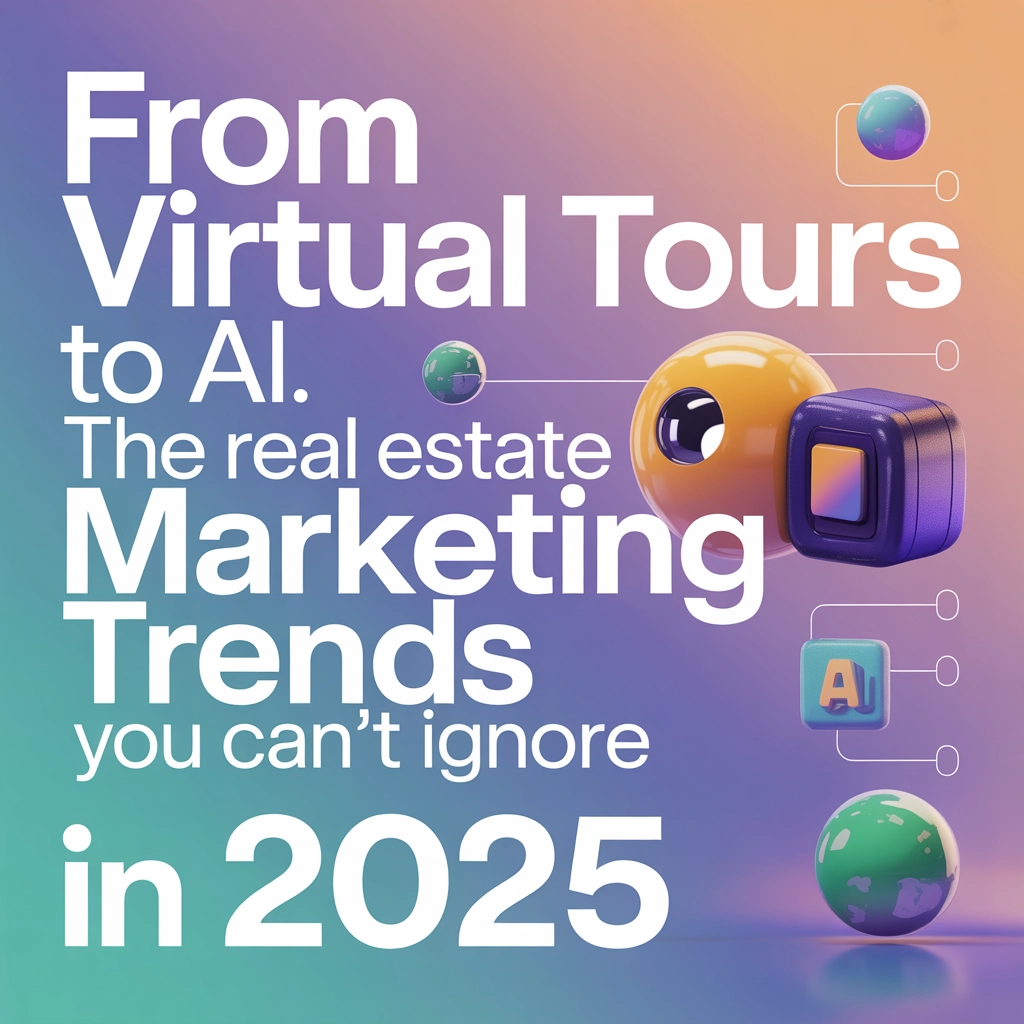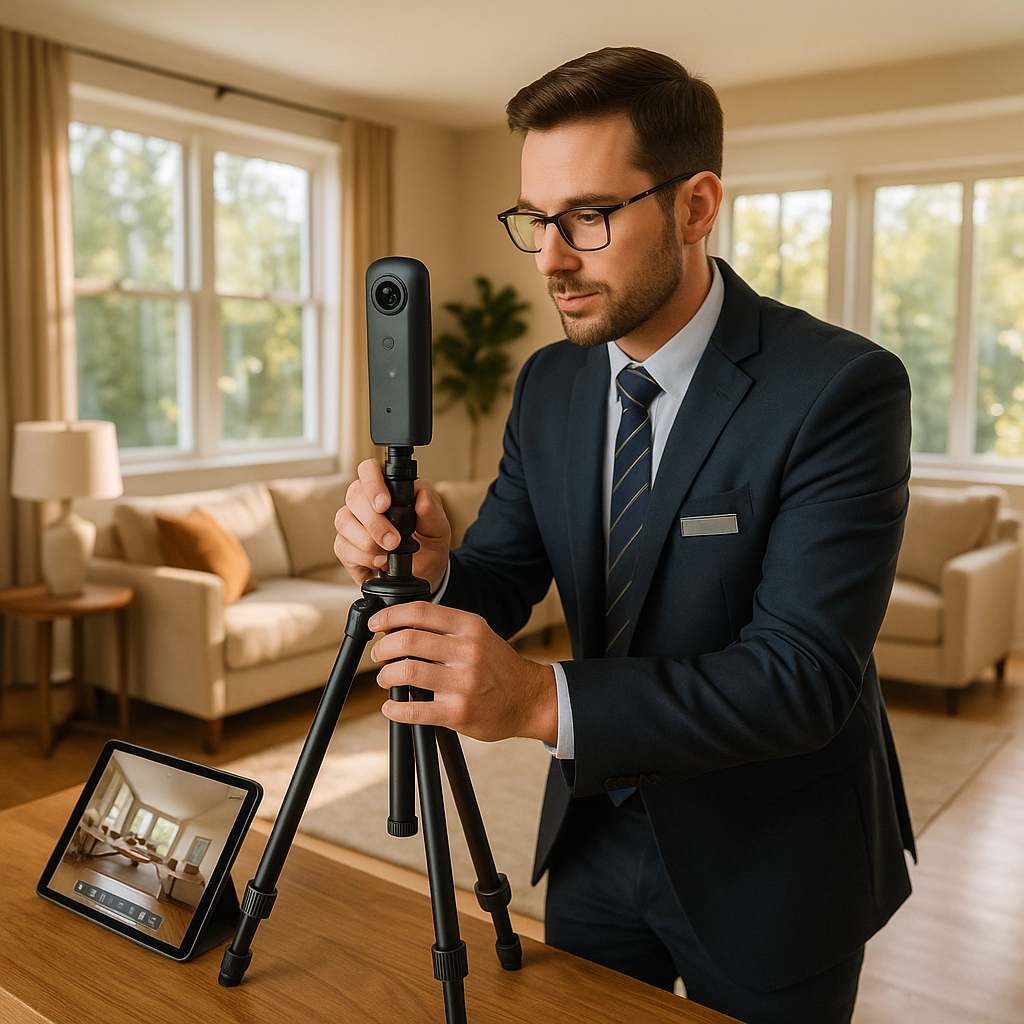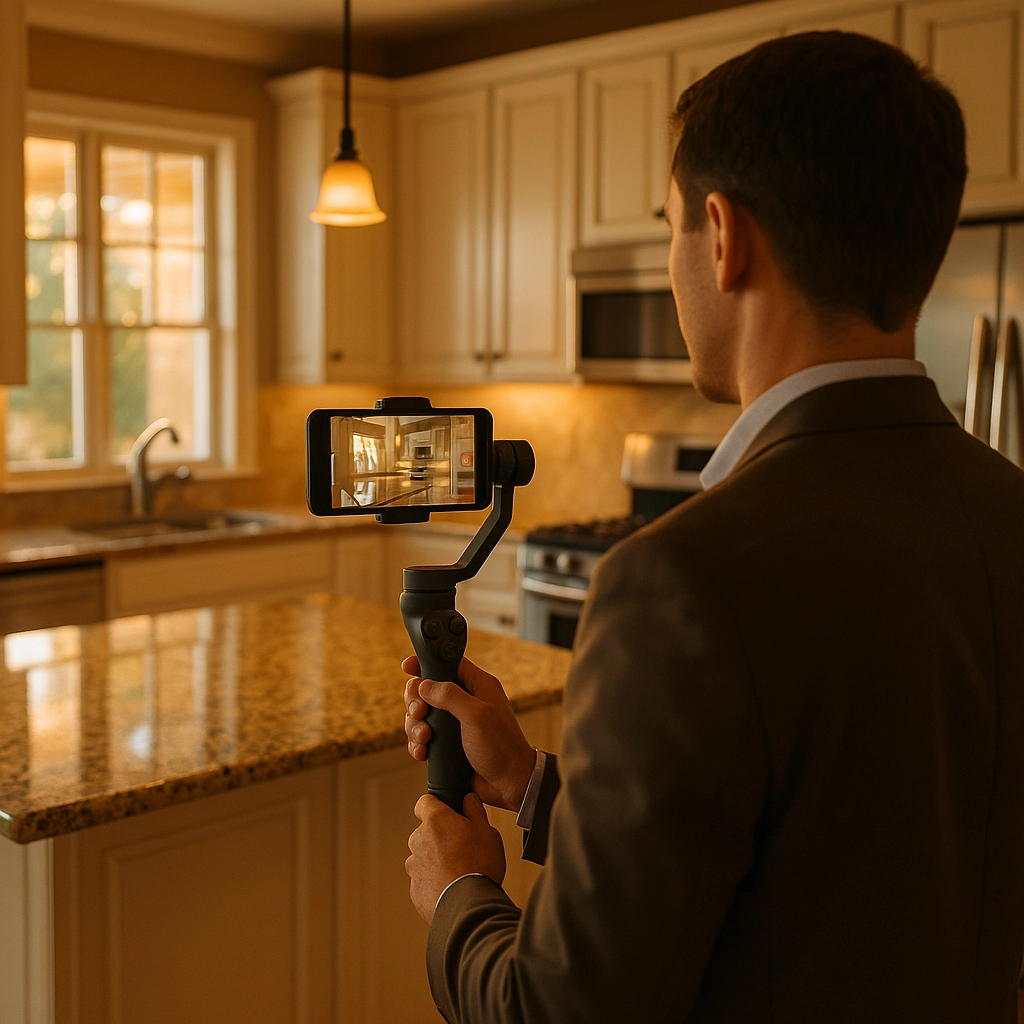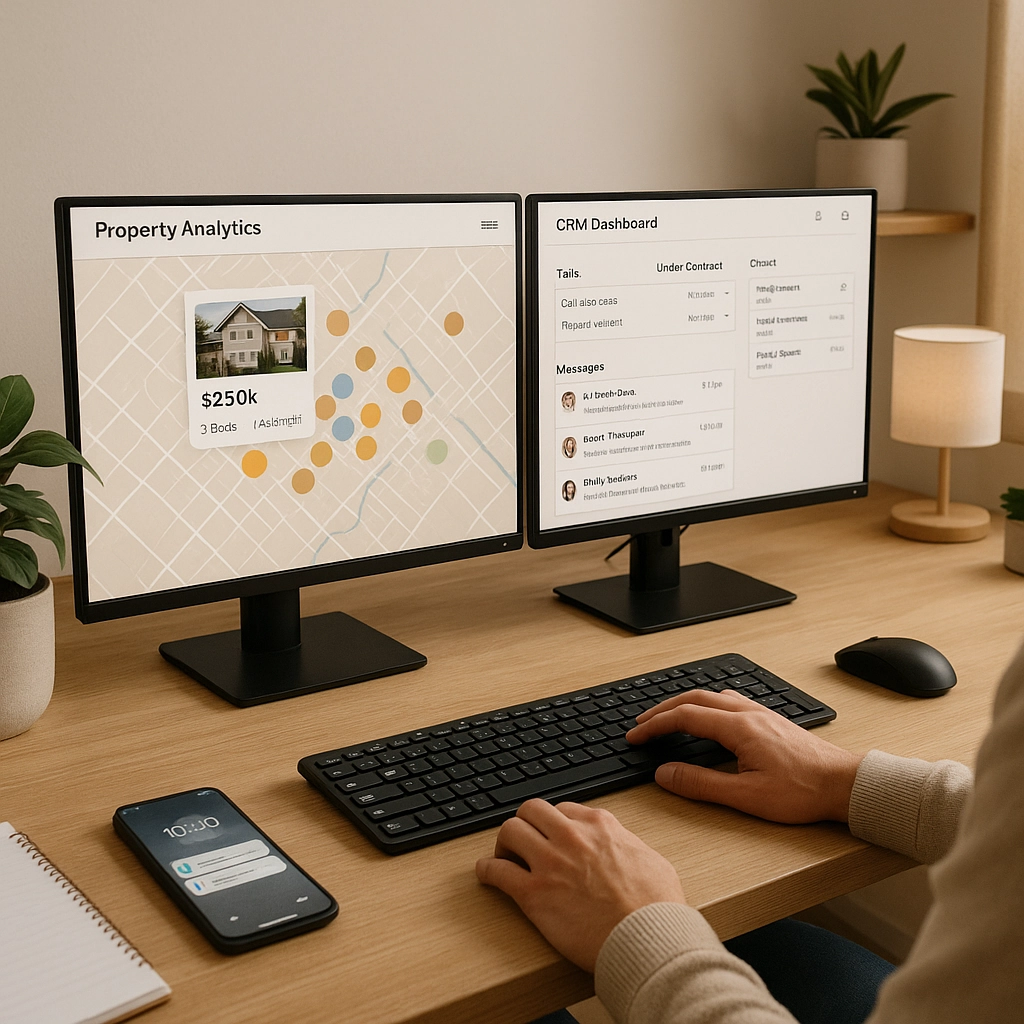From Virtual Tours to AI: The Real Estate Marketing Trends You Can't Ignore in 2025

In the fast-evolving world of real estate, staying ahead of marketing trends isn't just about being tech-savvy—it's about survival. As we navigate through 2025, the landscape has dramatically shifted from where we were even a couple of years ago. Buyers and sellers have new expectations, and the agents who thrive are those embracing innovative tools that create exceptional experiences.
As someone who's been in the trenches of real estate for years, I've watched these changes unfold firsthand. Today, I'm breaking down the marketing trends that are no longer optional if you want your listings to stand out—or if you're a buyer looking to understand how the best agents should be working for you.
Virtual Tours: From Novelty to Necessity
Remember when virtual tours were the exciting new thing? In 2025, they're the baseline expectation. But not all virtual experiences are created equal.
The basic 360-degree panoramas that wowed us in 2020 are now considered outdated. Today's buyers expect immersive, interactive experiences that give them a genuine feel for the property without leaving their couch.
What's working now:
Interactive 3D Walkthroughs: These allow potential buyers to navigate through homes at their own pace, exploring every corner and angle. Properties I list, like this beautiful Keene home, feature comprehensive walkthroughs that give buyers confidence before they ever step foot on the property.
Guided Virtual Open Houses: Live-streamed tours where I walk through the property, answering questions in real-time through chat features. These create engagement and urgency that recorded tours simply can't match.
Augmented Reality Overlays: These allow buyers to visualize potential renovations or furniture arrangements, helping them see a property's true potential.

AI-Powered Marketing: Working Smarter, Not Harder
Artificial intelligence has transformed from a buzzword to an essential toolkit for successful real estate professionals. In 2025, AI isn't replacing agents—it's making us significantly more effective.
Game-changing AI applications in real estate:
Predictive Analytics: AI systems now analyze market data, online behavior, and property characteristics to identify likely buyers for specific listings. This means we can target marketing efforts with surgical precision rather than casting wide nets.
Automated Follow-up Systems: Smart CRM systems track potential buyer interactions and automatically nurture leads with personalized content based on their specific interests and search patterns.
AI-Enhanced Listing Descriptions: Tools that analyze what features drive engagement in different neighborhoods and price points, helping craft descriptions that highlight what matters most to likely buyers.
Intelligent Pricing Models: AI systems that analyze hundreds of market variables to suggest optimal listing prices with remarkable accuracy.
One of my recent listings in Derry used AI-powered pricing and targeted marketing to receive multiple offers within 48 hours—something that would have been much harder to achieve with traditional methods. Check it out here.
Video Marketing: Short, Authentic, and Everywhere
In 2025, video isn't just important—it's essential. But the types of videos that drive engagement have evolved significantly.
What's working in video:
Short-Form Property Highlights: 30-60 second videos highlighting key features perform significantly better than longer productions. These are perfect for social media where attention spans are short.
Day-in-the-Life Neighborhood Tours: Brief videos showcasing local coffee shops, parks, schools, and community features help buyers envision their life in the area, not just the home.
Behind-the-Scenes Content: Videos showing the preparation process for listing a home or the story behind a property renovation create emotional connections with viewers.
Agent Authenticity: Casual, personality-driven videos outperform polished, corporate-style productions. Today's buyers and sellers want to work with real people they can relate to.

Social Proof Goes Digital (and Visual)
Reviews and testimonials have always been important, but their format and delivery have transformed in 2025.
Modern approaches to social proof:
Video Testimonials: Brief, authentic videos from past clients carry significantly more weight than written reviews. They're harder to fake and convey genuine emotion.
Transaction Timelines: Visual stories showing the journey of a home sale, from listing to closing, help set realistic expectations and demonstrate your process.
Social Media Engagement: Public interactions between agents and past clients serve as ongoing testimonials. My active listings page includes integration with review platforms to showcase real client experiences.
Success Metrics Visualization: Interactive graphics showing days on market, sale-to-list price ratios, and other performance metrics provide concrete evidence of an agent's effectiveness.
Hyper-Local Content Marketing Dominates
Generic real estate advice doesn't cut it anymore. The most successful agents in 2025 are those who position themselves as neighborhood specialists with deep local knowledge.
Effective local content strategies:
Micro-Market Reports: Breaking down market data by neighborhood or even street level rather than broad city statistics.
Local Business Partnerships: Content featuring local shop owners, restaurant chefs, and service providers that creates value for residents while building your network.
Community Event Coverage: Being the go-to source for information about local happenings positions you as connected and invested in the area.
Historical Context Content: Stories about neighborhood development, architectural styles, and community evolution that provide depth and context to listings.
I regularly share insights about our local market trends in New Hampshire communities like Keene and Washington on my website and social channels—it's information you simply can't get from national real estate portals.
Automation with a Personal Touch
The most successful real estate marketing in 2025 walks a careful line—leveraging automation for efficiency while maintaining authentic human connections.
Balanced approaches:
Smart Drip Campaigns: Automated email sequences that adapt based on recipient behavior, sending different content depending on which links were clicked or which properties were viewed.
Chatbots for Initial Inquiries: AI-powered conversation tools that handle basic questions 24/7 but smoothly transition to human agents for more complex discussions.
Personalized Property Alerts: Systems that learn buyer preferences over time and refine recommendations rather than sending generic new listing notifications.
Automated Follow-up with Personal Elements: Templates that incorporate specific details from previous interactions to maintain efficiency without sacrificing personalization.

Data Privacy and Transparency
With increasing regulations around data use, successful real estate marketing in 2025 prioritizes transparency and respect for privacy.
Best practices:
Clear Consent Processes: Straightforward explanations of how client data will be used, with simple opt-in/opt-out options.
Demonstrable Value Exchange: Showing clients exactly what benefits they receive in exchange for sharing their information.
Privacy-Forward Marketing: Highlighting your commitment to data protection as a competitive advantage and trust builder.
Education Content: Helping clients understand how their data improves their experience without feeling intrusive.
The Bottom Line: Integration is Key
The most important trend of all isn't any single technology—it's how these tools work together to create seamless experiences. The real estate professionals leading the way in 2025 aren't necessarily using more tools; they're using them more intelligently in integrated systems.
A virtual tour that automatically captures viewer interest data, triggers personalized follow-up, suggests similar properties, and schedules showings all within one ecosystem—that's the level of integration driving success today.
As a buyer or seller in today's market, you deserve an agent who's leveraging these tools and trends to provide exceptional service. If you're curious about how these approaches could work for your specific real estate needs, reach out anytime. I'm always happy to chat about how we're using these technologies to get better results for our clients every day.
The real estate industry will always be about relationships and trust, but in 2025, the way we build those relationships has evolved. By embracing these marketing trends, we're not replacing the human element—we're enhancing it to serve you better.



